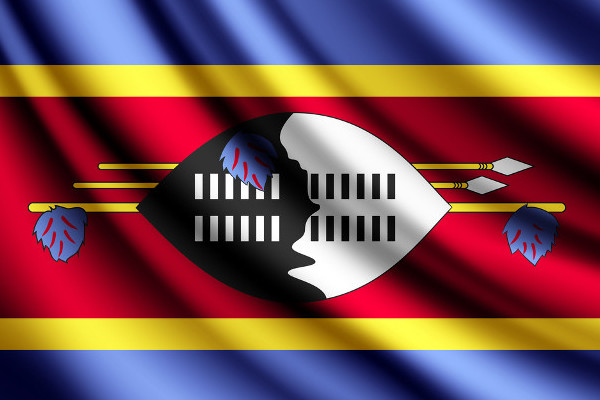
Oct 8, 2020 | News
Proposed legislation to regulate the operations and functions of the legal profession in Eswatini does not comply with international and regional standards and would severely undermine the right to an independent lawyer, the ICJ said today.
A Bill that the Government of Eswatini is reportedly seeking to introduce in Parliament would establish a Legal Services Regulatory Authority which would be responsible for issuing practising certificates to lawyers, disciplining lawyers in case of unethical conduct, developing and enforcing performance standards for legal practitioners in Eswatini, the ICJ said.
The proposed Legal Services Regulatory Authority would constitute up to 10 members of which only one would be appointed by the legal bar association (Law Society of Eswatini).
If enacted into law, the bill would severely undermine the independence of lawyers in Eswatini and may set a dangerous precedent for other countries in the SADC region, especially at this time when lawyers in other parts of the region are being persecuted by their governments, the ICJ added.
When discharging their functions, legal practitioners must be independent of control and undue influence in order for them to be able to represent their clients more effectively.
“The Legal Services Regulatory Authority proposed under the Eswatini Bill does not qualify as a self-governing professional body or an independent statutory authority because all but one of its members will be appointed by government,” said ICJ Africa Director Kaajal Ramjathan-Keogh.
“The establishment of this regulatory authority is likely to have a chilling effect on the freedom of lawyers to discharge their functions without being afraid of potential retribution through disciplinary proceedings based on frivolous charges,” she added.
The ICJ calls upon the Government of Eswatini to honour its domestic and international legal obligations to respect the independence of lawyers.
In this case, the ICJ urges the government to withdraw this bill and respect the independence of the lawyers to regulate themselves.
Background:
Eswatini has an obligation, in terms of its domestic constitution as well as regional and international law and standards, to respect and protect the independence of lawyers. Section 21 of the Constitution of Eswatini and regional and international human rights treaties and standards guarantee for every person the right to a fair hearing and the right to legal representation. These rights cannot be enjoyed effectively, unless lawyers are guaranteed the freedom to represent their clients and perform all their other duties without harassment, intimidation and undue interference.
The right of everyone to access to a lawyer as an essential element of a fair trial is recognized in, among other sources, the International Covenant on Civil and Political Rights (ICCPR), to which Eswatini has been a party since 2004. International and regional standards on ensuring the independence of lawyers are set out in the UN Basic Principles on the Role of Lawyers (UN Basic Principles) and the Principles and Guidelines on the Right to a Fair Trial and Legal Assistance in Africa.
Principle 16 of the United Nations Basic Principles, for instance, enjoins all governments to “ensure that lawyers are able to perform all of their professional functions without intimidation, hindrance, harassment or improper interference”.
Principle 24 affirms that, “Lawyers shall be entitled to form and join self-governing professional associations to represent their interests, promote their continuing education and training and protect their professional integrity. The executive body of the professional associations shall be elected by its members and shall exercise its functions without external interference.”
Principle 28 states that “Disciplinary proceedings against lawyers shall be brought before an impartial disciplinary committee established by the legal profession, before an independent statutory authority, or before a court, and shall be subject to an independent judicial review.”
In a recent unanimous resolution, the UN Human Rights Council recognized that “an independent legal profession” is among the “prerequisites for the protection of human rights and the application of the rule of law and for ensuring fair trials and the administration of justice without any discrimination”.
The Human Rights Council specifically expressed its concern “about situations where the entry into or continued practice within the legal profession is controlled or arbitrarily interfered with by the executive branch, with particular regard to abuse of systems for the licensing of lawyers.” It recommended that any domestic legislation should “provide for independent and self-governing professional associations of lawyers” and should “recognize the vital role played by lawyers in upholding the rule of law and promoting and protecting human rights”.
Contact:
Kaajal Ramjathan-Keogh, Director of ICJ’s Africa Regional Programme, c: +27845148039, e: Kaajal kaajal.keogh(a)icj.org
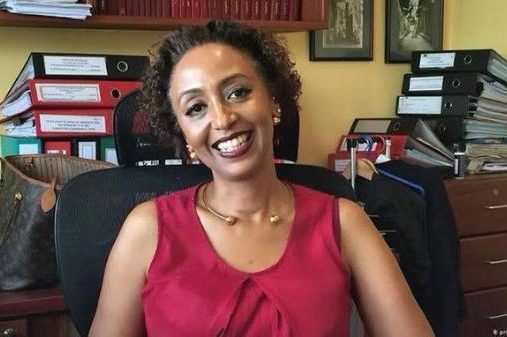
Oct 8, 2020 | News
The ICJ today called for reinstatement of Tanzania lawyer Fatma Karume, characterizing a permanent prohibition from her practicing law as a violation of her rights and the independence of the legal profession.
In September 2019, the High Court of Tanzania issued an order suspending senior lawyer Fatma Karume from practising law in mainland Tanzania.
The High Court directed the Advocates’ Disciplinary Committee of Tanzania to conduct a disciplinary hearing and make a final determination on whether Fatma Karume, a former president of Tanganyika Law Society, which is the Bar association of mainland Tanzania, should be allowed to practice law.
Allegations of misconduct against Fatma Karume arose from her written submissions in a constitutional challenge to President Magufuli’s appointment of Professor Adelardus Kilangi as the Attorney General of Tanzania.
The State’s counsel complained that the language used by Fatma Karume in her submissions was unprofessional and disrespectful of the Attorney General, who was the subject of the constitutional challenge.
A year later, on 23 September 2020, the Advocates’ Disciplinary Committee found Fatma Karume guilty of the alleged misconduct and directed that she be permanently disbarred from practising law in Tanzania.
“The ICJ views the decision to permanently disbar Fatma Karume from legal practice, as a grave violation of Tanzania’s domestic, regional and international legal obligations relating to Fatma Karume’s right to be heard, her right to work and a violation of the independence of lawyers,” said ICJ Africa Director, Kaajal Ramjathan-Keogh.
“Fatma Karume’s right to be heard was violated in many ways. First, the complaint of misconduct was made in the State’s rejoinder submissions and Ms Karume was not afforded an opportunity to respond on record, before the High Court made the decision to temporarily suspend her from practice. Secondly, her right to a speedy hearing was violated because it took the Advocate’s Disciplinary Committee of Tanzania a year to make a final determination in her case,” she added.
The ICJ also considers that the substance of the charges of misconduct against Fatma Karume was inconsistent with international and regional standards, in so far as they were based on written submissions made in good faith as part of the due discharge of her professional functions.
The ICJ urges the authorities in Tanzania to rescind the decision to disbar Fatma Karume from legal practice and restore her right to work and in particular, her right to practice law.
In the meantime, ICJ welcomes the decision of the Tanganyika Law Society to support Fatma Karume to appeal against her disbarment.
Background
Articles 21 and 13 (6) (a) of the Constitution of Tanzania guarantee every person with the right to work and the right to a fair hearing respectively. In terms of regional law, Article 7(1) of the African Charter on Human and People’s Rights obliges governments to respect and protect the right of every individual to be presumed innocent until proven guilty by a competent court or tribunal; the right to present a defense; and, the right to be tried within a reasonable time by an impartial court or tribunal. Similar rights are recognised in Article 14 of the International Covenant on Civil and Political Rights (ICCPR). In addition, Principle 27 of the United Nations Basic Principles on the Role of Lawyers (UN Basic Principles) states that “Charges or complaints made against lawyers in their professional capacity shall be processed expeditiously and fairly under appropriate procedures. Lawyers shall have the right to a fair hearing, including the right to be assisted by a lawyer of their choice.”
Principle 20 of the UN Basic Principles provides that “Lawyers shall enjoy civil and penal immunity for relevant statements made in good faith in written or oral pleadings or in their professional appearances before a court, tribunal or other legal or administrative authority.” Similar provisions are included in Part I of the African Principles and Guidelines.
Contact
Kaajal Ramjathan-Keogh, Director of ICJ’s Africa Regional Programme, c: +27845148039, e: Kaajal kaajal.keogh@icj.org
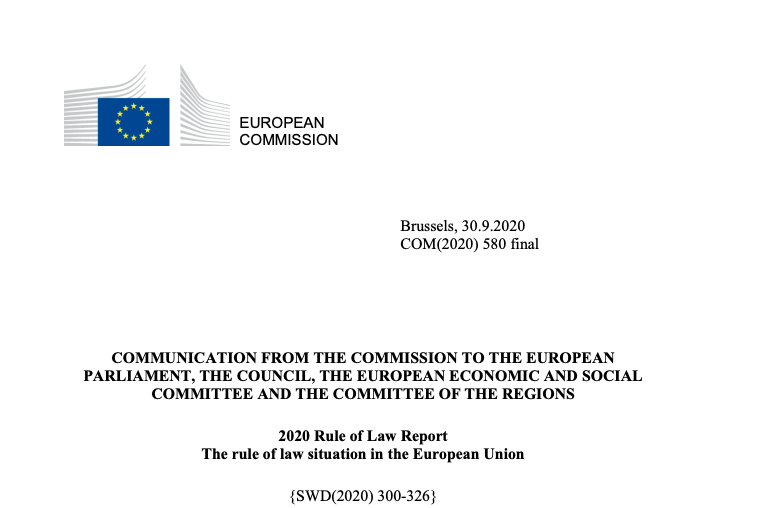
Sep 30, 2020 | News
The ICJ today welcomed the first annual rule of law report of the European Commission, which analyses the compliance of all EU Member States with rule of law standards, including on judicial independence, freedom of the media and civil society.
The report is a welcome recognition that rule of law guarantees cannot be taken for granted in any European country, and that all EU institutions must be particularly vigilant in their defence.
But the ICJ warns that the report is only valuable if it leads to strengthened EU enforcement action to address the serious rule of law crises in Poland and in Hungary.
“This report is further testimony to the actions of governments of Poland and Hungary, to deliberately and systematically dismantle protections for judicial independence and other essential rule of law protections,” said Róisín Pillay, ICJ Europe and Central Asia Programme Director.
“We need the EU to use its powers of enforcement promptly and to the full, to defend these fundamental guarantees, including through prompt progression of Article 7 and enforcement proceedings. It is welcome that the European Commission calls on Member States to accelerate the resolution of problems raised under the Article 7 proceedings against Poland and Hungary. This report should lead to renewed efforts of all the institutions to urgently progress these proceedings,” she added.
Additional information
The full text of the European Commission report is available here: https://ec.europa.eu/info/publications/2020-rule-law-report-communication-and-country-chapters_en
The International Commission of Jurists has repeatedly expressed serious concern at the deteriorating rule of law situation in both Poland and Hungary, see for example:
https://www.icj.org/poland-judges-and-lawyers-from-around-the-world-condemn-rapidly-escalating-rule-of-law-crisis/
And here: https://www.icj.org/european-union-icj-joins-call-for-urgent-eu-response-to-hungarys-covid-19-emergency-law/
Contact:
Róisín Pillay, ICJ Europe and Central Asia Programme Director, t: +32 476 97 42 63; e: roisin.pillay@icj.org
Karolina Babicka, Legal Adviser, ICJ Europe and Central Asia Programme, t: +32 475 46 20 67; e: karolina.babicka@icj.org
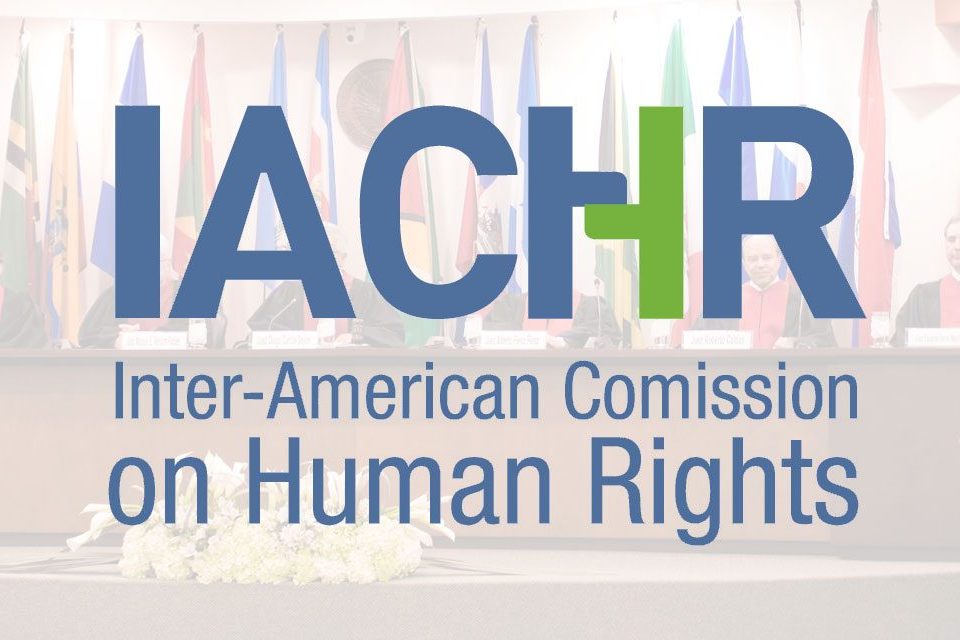
Sep 1, 2020 | Advocacy, News
Today the ICJ called on the Organization of American States (OAS) to respect the autonomy and independence of the Inter-American Commission on Human Rights (IACHR) as the body in charge of promoting the observance of human rights in the Americas, including in respect of its core administration functions.
The OAS Secretary-General has declined to endorse the unanimous decision taken in January by the seven-person IACHR to renew the mandate of its Executive Secretary, Paulo Abrão, whose term expired on 15 August.
The Secretary General indicated that his action was motivated by concern at internal complaints that are still to be resolved.
The refusal to renew this mandate, however, must not be made on the basis of pending complaints, which must nonetheless be resolved in a reasonably short period of time, based on the principles of due process for all parties concerned
The ICJ recognizes the importance of processing the staffs’ complaints in a timely manner which respects the due process rights of the parties concerned through an independent and transparent process.
The ICJ recalls that it is essential to ensure the independence and autonomy of the Inter-American Commission, which necessarily includes the functions related to the appointment process of the Executive Secretary.
“The IACHR has played a critical role in the Americas to advance human rights and to protect victims of human rights violations,” said ICJ Secretary General Sam Zarifi.
He also mentioned that “the situation requires an urgent resolution that guarantees respect for the principles of independence and autonomy of the IACHR.”
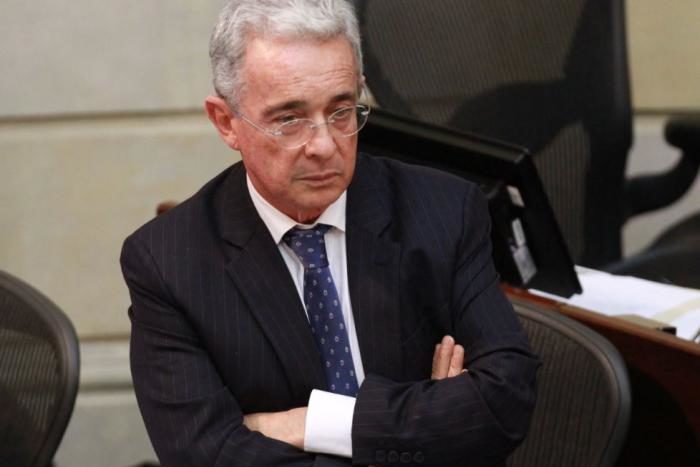
Aug 19, 2020 | News
Today the ICJ called on the public authorities to refrain from comments or actions that could undermine the integrity of the judicial process and the independence of the judiciary.
On August 4, the Instruction Special Chamber of the Criminal Chamber of the Supreme Court of Justice ordered the pretrial detention, substituted for house arrest, of the former President Álvaro Uribe Velez, relating to allegations of bribery of witnesses and procedural fraud.
In recent days, a number of politicians have made highly inappropriate and inflammatory statements, including some suggesting that judges are making their decisions based on ideological or political biases rather than based on the Constitution and the law.
Colombian president Ivan Duque said in remarks broadcast on television on the 4 of August: “it hurts as a Colombian that many of those who have lacerated the country with barbarism defend themselves at liberty or are even guaranteed to never go to prison, and that an exemplary public servant who has held the highest dignity of the State is not allowed to defend himself in freedom with the presumption of innocence. I am and will always be a believer in the innocence and in the honor of him who, with his example, have earned a place in the history of Colombia.” (unofficial translation).
The ICJ stresses that it is inappropriate for a head-of-State or other executive official to intervene in this manner in a case that is under active judicial proceedings. The UN Basic Principles on the Independence of the Judiciary make clear that “it is the duty of all governmental and other institutions to respect and observe the independence of the judiciary” and this includes refraining from any “improper influences, inducements, pressures, threats or interferences, direct or indirect.”
In reaction to Senator Uribe’s arrest, the political party “Centro Democrático”, of which both President Duque and former President Uribe are members, released a press statement saying that they were planning to propose a National Constituent Assembly with the purpose of “depoliticizing justice”. Also, former President Uribe mentioned on 16 of August that he hoped his political party would initiate a reform of the justice system through a “referendum” to end the “politicization” of the Court.
The ICJ considers that any actions concerning reforms of the justice sector must be based on the standards and best practices that reinforce the independence of the judiciary and the prompt, timely and fair administration of justice, and not on a political reaction based on a single active case.
Lastly, United States Vice President Mike Pence has also made inappropriate remarks related to the Colombian justice system, tweeting on August 14 that he joined the voices that called Colombian authorities to let Alvaro Uribe “defend himself as a free man”.
Contact
Carolina Villadiego Burbano, ICJ Latin America legal and policy adviser, e: carolina.villadiego(a)icj.org









